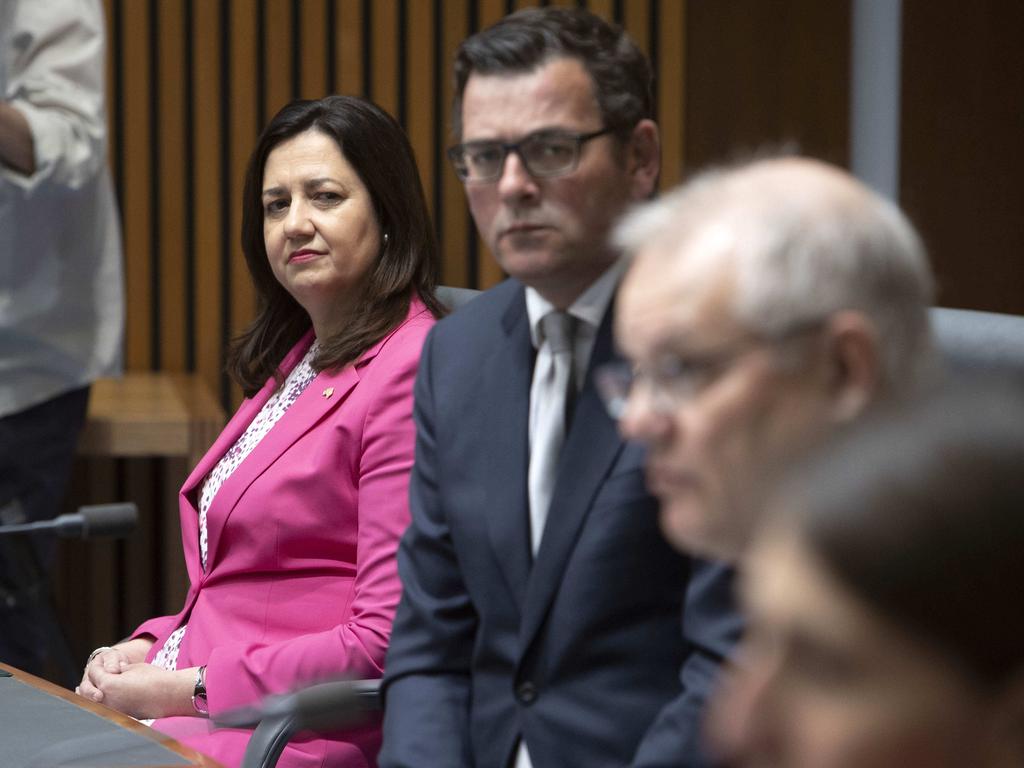A net-zero chance of climate success

That is a high bar, surpassing World War II, the black plague and Covid.
On the other side, hand-waving politicians sell net-zero climate schemes as a near-utopia that every nation will rush to embrace. As John Kerry, US President Joe Biden’s climate envoy, told world leaders gathered at his climate summit in April: “No one is being asked for a sacrifice.”
Both of these claims can’t be true. Yet, they are often espoused by the same climate campaigners in different parts of their publicity cycle. The tough talk strives to shake us into action, and the promise of rainbows hides the political peril when the bills come due.
George Orwell called this willingness to espouse contradictory claims doublethink. It is politically expedient and gets climate-alarmed politicians re-elected. But if we want to fix climate change, we need honesty.
The currently promised climate policies will be incredibly expensive. While they will deliver some benefits, their costs will be much higher.
Yes, climate change is real and man-made, and we should fix it smartly. But we don’t because climate impacts are often vastly exaggerated, leaving us panicked. The UN Climate Panel estimates that if we do nothing, climate damages in 2100 will be equivalent to 2.6 per cent of global GDP. That is a problem, not the end of the world.
Most people think the damage will be much more significant because climate news only reports the worst outcomes. Remember how we were repeatedly told 2020’s Atlantic hurricane season was the worst ever? The reporting ignored that almost everywhere else, hurricane intensity was feeble, making 2020 one of the globally weakest in satellite history. And even within the Atlantic, 2020 ranked 13th.
When Kerry and many other politicians insist that climate policies mean no sacrifice, they are clearly dissembling. In the UN Climate Panel’s overview, all climate policies have real costs. Why else would we need recurrent climate summits to arm-twist unwilling politicians to ever-greater promises?
The IEA’s new net-zero report contains plenty of concrete examples of sacrifices. By 2050, we will have to live with much lower energy consumption than today. Despite being richer, the average global person will be allowed less energy than today’s average poor. We will all be allowed less than the average Albanian used in the 1980s. We will also have to accept to shiver in winter at 19°C and swelter in summer at 26°C, highway speeds curtailed and fewer people allowed to fly.
But climate policy sacrifices could still make sense if their costs were lower than the achieved climate benefits. If we could avoid all of the 2.6 per cent climate damage for, say, 1 per cent sacrifice, that would be a good outcome. This is common sense and the core logic of the world’s only climate economist to win the Nobel prize in 2018. Smart climate policy costs little and reduces climate damages a lot.
Unfortunately, our current doublethink delivers the reverse outcome. One new peer-reviewed study finds the cost of net-zero just after 2060 – much later than what most politicians promise – will cost us more than 4 per cent of GDP already in 2040, or about $US5 trillion annually.
And this assumes globally co-ordinated carbon taxes. Otherwise, costs will more than double.
Paying 8 per cent or more to avoid part of 2.6 per cent damages half a century later is just bad economics.
It is also implausible politics. Just for China, the cost of going net-zero exceeds 7-14 per cent of its GDP. Instead, China uses green rhetoric to placate westerners but aims for development with 247 new coal-fired power plants.
For the first time, China now emits more greenhouse gases than the entire rich world.
Most other poorer countries are hoping to follow China’s rapid ascendance. At a recent climate conference, where dozens of high-level delegates dutifully lauded net-zero, India went off-script.
With the other participants squirming, India’s power minister Raj Kumar Singh inconveniently blurted out the truth: net-zero “is just pie-in-the-sky.”
He added that developing countries will want to use more and more fossil fuels and “you can’t stop them”.
If we push on with our climate doublethink, rich people will likely continue to wring their hands and aim for net-zero emissions, even at considerable costs to their own societies. But three-quarters of future emissions will come from poorer countries with more important development priorities of avoiding poverty, hunger and disease.
Like most great challenges humanity has faced, we solve them not by pushing for endless sacrifices but through innovation. Covid is fixed with vaccines, not unending lockdowns. To tackle climate, we need to ramp up our investments in green energy innovation dramatically.
Currently, increasing green energy requires massive subsidies, but if we could innovate its future price below fossil fuels, everyone would switch. Innovation is the most sustainable climate solution. It is dramatically cheaper than current policies and demands fewer sacrifices while delivering benefits for most of the world’s population.
Bjorn Lomborg is president of the Copenhagen Consensus and Visiting Fellow at the Hoover Institution, Stanford University. His latest book is False Alarm: How Climate Change Panic Costs Us Trillions, Hurts the Poor, and Fails to Fix the Planet.






Our current climate conversation embodies two blatantly contradictory claims. On one side, experts warn that promised climate policies will be economically crippling. In a new report, the International Energy Agency states that achieving net-zero in 2050 will likely be “the greatest challenge humankind has ever faced”.